Power Quote: Harold Bloom Brings it All Back Home

The motives for reading, as for writing, are very diverse and frequently not clear even to the most self-conscious readers or writers. Perhaps the ultimate motive for metaphor, or the writing and reading of figurative language, is the desire to be different, to be elsewhere. In this assertion I follow Nietzsche, who wanred us that what we can find words for is already dead in our hearts, so that there is always a kind of contempt in the act of speaking. Hamlet agrees with Nietzsche, and both might have extended the contempt to the act of writing. But we do not read to unpack our hearts, and so there is no contempt in the act of reading. Traditions tell us that the free and solitary self writes in order to overcome mortality. I think that the self, in its quest to be free and solitary, ultimately reads with one aim only: to confront greatness. That confrontation scarcely masks the desire to join greatness, which is the basis of the aesthetic experience once called the Sublime: the quest for a transcendence of limits. Our common fate is age, sickness, death, oblivion. Our common hope, tenuous but persistent, is for some version of survival.
–Harold Bloom, The Western Canon, “Elegiac Conclusion”
Power Quote: Harold Bloom, Virginia Woolf Double Down
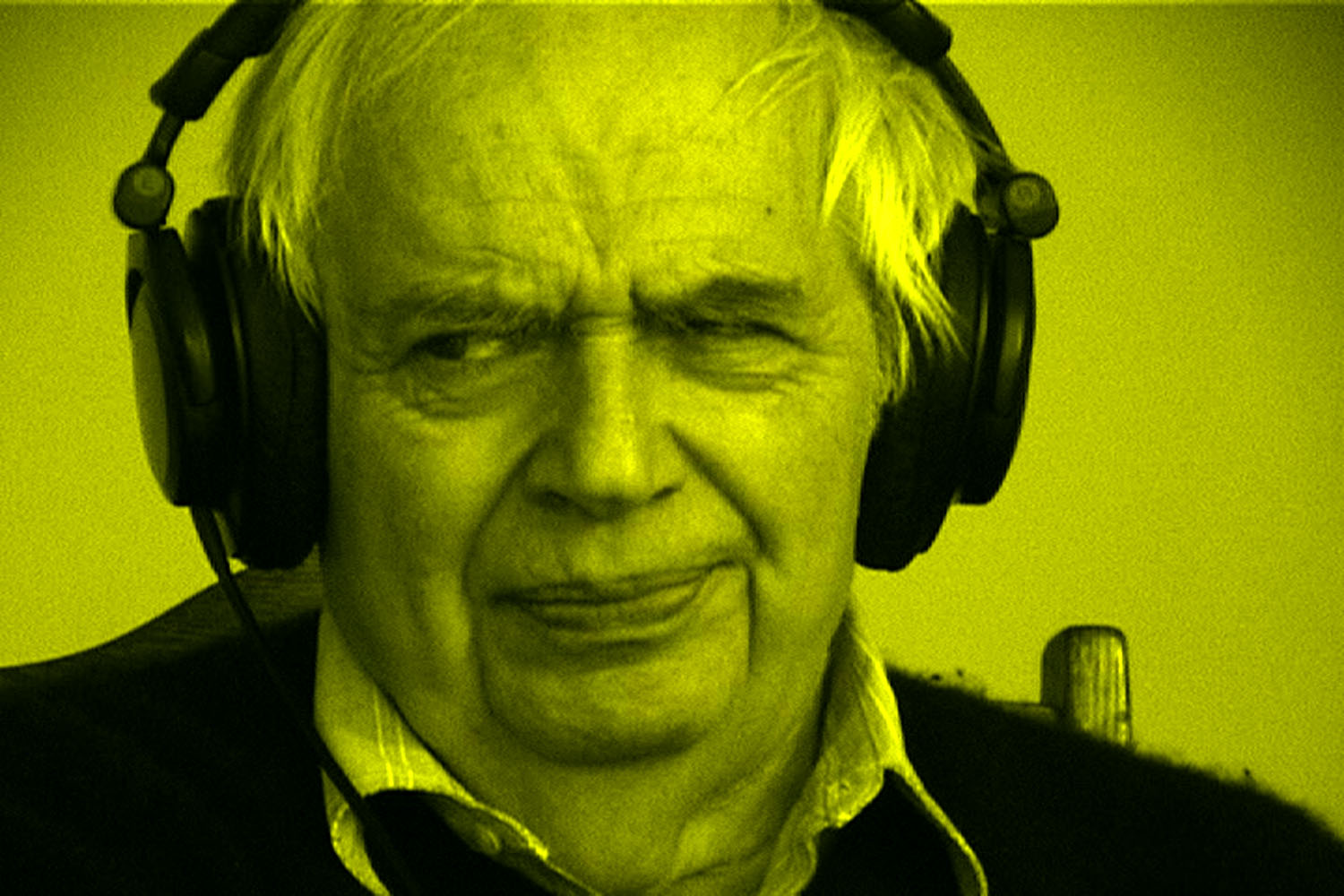
Yet who reads to bring about an end however desirable? Are there not some pursuits that we practice because they are good in themselves, and some pleasures that are final? And is not this among them? I have sometimes dreamt, at least, that when the Day of Judgment dawns and the great conquerors and lawyers and statesmen come to receive their rewards–their crowns, their laurels, their names carved indelibly upon imperishable marble–the Almighty will turn to Peter and will say, not without a certain envy when He sees us coming with our books under our arms, “Look, these need no reward. We have nothing to give them here. They have loved reading.”
— Virginia Woolf, from The Second Common Reader (quoted by Bloom in The Western Canon)
Those first three sentences have been my credo ever since I read them in my childhood, and I urge them now upon myself, and all who still can rally to them. They do not preclude reading to obtain power, over oneself or over others, but only through a pleasure that is final, a difficult and authentic pleasure.
— Harold Bloom, The Western Canon, “Woolf’s Orlando: Feminism as The Love of Reading”
Power Quote: One of Harold Bloom’s Hands Clapping Edition

This one’s for my homies who asked for a more detailed commentary on Dickens/Bloom that I don’t have time to offer up this week.
One of the blessings of Dickens’s powerful influence on Kafka is the altogether Borgesian impact of Kafka on our understanding of Dickens.
– The Western Canon, “The Canonical Novel: Dickens’s Bleak House and George Eliot’s Middlemarch“
Robert Walser offers an alternate reason for the decline and fall of fine booksellers everywhere
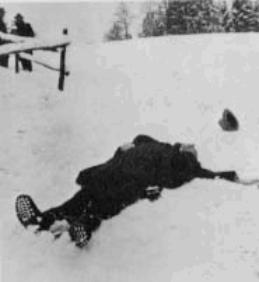
You have disappointed me. Don’t look so astonished, there’s nothing to be done about it, I shall quit your place of business this very day and ask you to pay me my wages. Please, let me finish. I know perfectly well what I want. During the past week I’ve come to realize that the entire book trade is nothing less than ghastly if it must entail standing at one’s desk from early morning till late at night while out of doors the gentlest winter sun is gleaming, and forces one to scrunch one’s back, since the desk is far too small given my stature, writing like some accursed happenstance copyist and performing unsuitable for a mind such as my own.
Power Quote: Marcel Proust
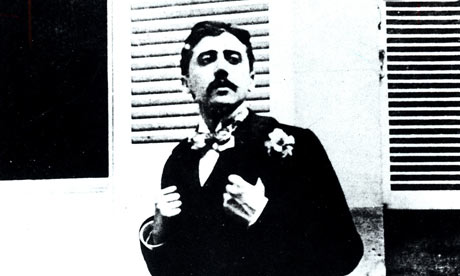
Marcel Proust describes a booger:
Its viscous, warm core had slipped down the linen of one, but had adhered to the cloth of the other, and held the silvery, fluent fringe that dripped from it in suspense above the void. The sun, piercing them, confused the sticky mucus with the diluted solution. One could make out just the one single succulent, quivering mass, transparent and hardening; and in the ephemeral brilliance with which it decorated [his] attire, it seemed to have fixed the prestige of a momentary diamond there, still hot, so to speak, from the oven from which it had emerged, and for which this unstable jelly, corrosive and alive as it was for one more instant, seemed at once, by its deceitful, fascinating beauty, to present both a mockery and a symbol.
From video games to porn, the explicitness of today is merely rendered before the eyes, not inside the mind. In the old days, a sickly gay french dude who lived with his mom was all there was — and it was good.
Power Quote: Evelyn Waugh

“Women are an enigma,” said Grimes, “as far as Grimes is concerned.”
— Decline and Fall (1928)
I’m tempted to think ‘meta-fictional,’ though Waugh has excised himself from the enterprise. Referring to oneself in the third person, as Grimes has done, is not exclusively the domain of literature or the schizophrenic. Waugh is outside of the joke here, and it’s not between the reader or the words. The joke — the brilliant joke — lies between Grimes and the very syntax with which he is rendered. “Women are an enigma, as far as I’m concerned,” would be the natural and un-Waugh way to go. The objective assertion of “said Grimes” is completely undone when said Grimes (geez this is getting complicated), within that very assertion (Waugh’s), attempts to assert himself what he, Grimes, is saying. In short, a fictional character has tried to write himself in the same sentence. And no, I’m not high on caffeine; I’m low on vitamin D. I’ve been home all Saturday looking for quotes.
Stupid as gherkins?
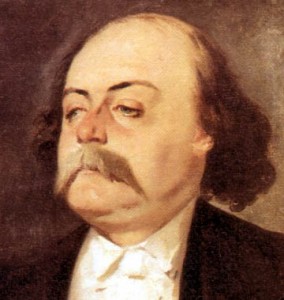 As I waited to be found unfit for jury duty today, down at the Brooklyn Supreme Court, I came across a line in Sentimental Education that made me chuckle. It helped get me through a miserably boring morning, and I’d like to share it with you.
As I waited to be found unfit for jury duty today, down at the Brooklyn Supreme Court, I came across a line in Sentimental Education that made me chuckle. It helped get me through a miserably boring morning, and I’d like to share it with you.
‘All this lacks form and colour,’ Frédérick’s neighbour continued. ‘I do trow, honoured sir, that we have degenerated. In the good old days of Loys the Eleventh, nay even of Benjamin Constant, there was more of a rebellious spirit among the scholars of the town. I deem them as meek as sheep, as stupid as gherkins, and by my troth, well fitted to be grocers.’
Now that I think about it, maybe the reason I was not selected was that I quoted this (without attribution) to Judge Chun when he asked if there were any possible impediments to my being an impartial juror.
Anyone looking to get out of duty, feel free to use the quote, but don’t come whining to me if the judge isn’t a fan of literature and throws you in the brig.
I wish I could say that I was tired of this news cycle
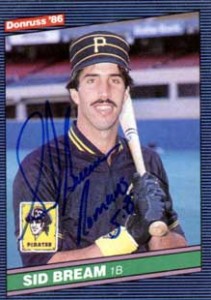 If Justin Taylor has taught me anything, it that we won’t be able to beat the pirates until we understand the pirates. I’ve put together a quick primer for budding armchair piracy experts:
If Justin Taylor has taught me anything, it that we won’t be able to beat the pirates until we understand the pirates. I’ve put together a quick primer for budding armchair piracy experts:
1) Seven Tenths: The Sea and its Thresholds, by James Hamilton-Paterson. The ocean is vast. Real vast. Supports much life (including buccaneer life). Says Hamilton-Paterson:
It is well known in these parts that fish choose not to speak in order to risk nothing worse at men’s hands. Being wrenched from the depths into thin and bitter light to drown slowly in is bad, but not bad enough to merit speech.
Power Quote: Harold Bloom Names Names Edition (with special “I don’t know how to control myself” bonus feature)

If you think of the major American writers, you are likely to remember Melville, Hawthorne, Twain, James, Cather, Dreiser, Faulkner, Hemingway, and Fitzgerald among the novelists. Nathaneal West, Ralph Ellison, Thomas Pynchon, Flannery O’Connor, and Philip Roth would be among those I would add. The poets who matter most begin with Whitman and Dickinson and include Frost, Stevens, Moore, Eliot, Crane, and perhaps Pound and William Carlos Williams. Of more recent figures I would list Robert Penn Warren, Theorodre Roethke, Elizabeth Bishop, James Merrill, John Ashbery, A.R. Ammons, May Swenson. The dramatists are less illustrious: Eugene O’Neill now makes for unsatisfactory reading, and perhaps only Tennessee Williams will gain by the passage of time. Our major essayists remain Emerson and Thoreau; no one has matched them since. Poe is too universally accepted around the world to be excluded, though his writing is almost invariably atrocious.
–“Walt Whiman as Center of the American Canon,” The Western Canon
Power Quote: Ezra Pound

“The man of understanding can no more sit quiet and resigned while his country lets its literature decay, and lets good writing meet with contempt, than a good doctor could sit quiet and contented while some ignorant child was infecting itself with tuberculosis under the impression that it was merely eating jam tarts.”
—ABC of Reading
[PS- hat tip to my man, Michael Signorelli, who emailed me the quote just now. Do you have any idea how rad it is to have an editor who sends letters that begin: “Have you been reading Pound today? I started up on ABC of Reading again…” ? Well, allow me to give you an idea: it is very, very rad.]
